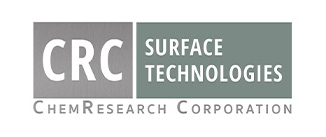
05 Apr The Cadmium Plating Process: Benefits and Applications
A byproduct of zinc, cadmium has many unique properties that make it an ideal coating for certain applications. It’s a popular choice for plating aerospace and automotive components, as well as any other parts that will be exposed to harsh environments. Cadmium plating improves corrosion resistance, conductivity, functionality, longevity, and more. In this post, we’ll explore the impressive benefits that the cadmium plating process offers, and list its common applications.
Understanding the Cadmium Plating Process
The cadmium electroplating process involves submerging a metal substrate into an electrolyte solution that contains cadmium ions. When an electric current passes through the solution, a silvery, soft white layer of cadmium forms on the substrate’s surface. Cadmium plating is typically used to coat steel, copper, or iron components. It offers excellent protection from corrosion, and provides a wide range of other benefits that help extend the lifespan of the metal substrate.
Five Benefits of Cadmium Plating
1: Excellent Corrosion Resistance
Cadmium protects against corrosion, making it ideal for use in environments where exposure to moisture, salt, or harsh chemicals is a concern. This property makes cadmium plating a popular choice in marine and aerospace applications, where components are regularly subjected to extreme conditions.
2: Sacrificial Protection
Cadmium also acts as a “sacrificial coating,” meaning it will corrode and degrade over time, instead of the substrate underneath. Even if the coating is compromised, the base material will remain safe from corrosion.
3: Low Friction Coefficient
Cadmium plating provides built-in lubricity, which prevents galling and creates a low-friction surface. A low coefficient of friction is crucial for improving the efficiency and longevity of moving mechanical parts like gears and bearings.
4: Strong Adhesion
Another benefit of cadmium is that it adheres well to a variety of substrates, ensuring a strong bond between the coating and base material. Proper adhesion improves the durability and longevity of plated components.
5: Enhanced Electrical Conductivity
Electricity can flow through cadmium with very little resistance, resulting in better performance and increased conductivity in the final product. Cadmium plating can ensure the reliable performance and longevity of electronic devices and systems.
What Is Cadmium Plating Used for?
Aerospace Components
Cadmium plating is extensively used in the aerospace industry for improving the durability and reliability of metal parts with its superior corrosion resistance. It’s commonly applied to aircraft components such as fasteners, landing gear, and hydraulic systems.
Military and Defense Equipment
Military equipment and defense systems often require protection against harsh environmental conditions and corrosion. Cadmium plating is a popular choice for military vehicles, aircraft, submarines, and ships, due to its ability to withstand extreme environments.
Electronic Applications
Cadmium plating is commonly used in the manufacture of electronics because of its excellent electrical conductivity and corrosion resistance. For instance, it’s often applied to electrical connectors and contacts to improve their conductivity and performance.
Marine Equipment
Saltwater can quickly degrade marine equipment. Cadmium plating is highly resistant to saltwater corrosion, making it ideal for protecting equipment and components in marine environments.
Cadmium Plating Services in Phoenix, Arizona
Cadmium is a highly beneficial and effective plating solution for many industries. However, it must be handled safely and responsibly. At CRC Surface Technologies, we offer Types I, II, and III cadmium processes in accordance with AMS-QQ-P-416.
If you’re interested in high-quality cadmium plating, request a quote today—send a message to rfq@chemresearchco.com, or give us a call at 602-253-4175 to learn more.
Images used under creative commons license – commercial use (4/5/2024). Photo by John McArthur on Unsplash

